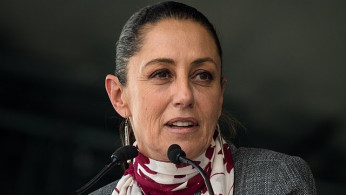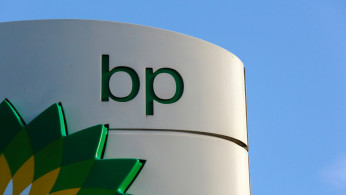Jerry Lin

The Latest
-
Mexico Vows Retaliation as Trump Threatens Sweeping Tariffs on Day One
President-elect Donald Trump has announced plans to impose sweeping tariffs on goods from Mexico, Canada, and China immediately upon taking office, framing the move as part of his strategy to combat illegal immigration and drug trafficking. Trump revealed his intentions Monday night in a series of posts on his social media platform. 
President-elect Donald Trump has announced plans to impose sweeping tariffs on goods from Mexico, Canada, and China immediately upon taking office, framing the move as part of his strategy to combat illegal immigration and drug trafficking. Trump revealed his intentions Monday night in a series of posts on his social media platform. -
Gary Gensler to Step Down as SEC Chair, Paving Way for Trump’s New Appointee
Securities and Exchange Commission (SEC) Chair Gary Gensler will resign on January 20, bringing an end to a tenure marked by ambitious and contentious regulatory actions. The announcement, made by the agency on Thursday, clears the way for President-elect Donald Trump to select a replacement who is expected to significantly reshape the agency's priorities. 
Securities and Exchange Commission (SEC) Chair Gary Gensler will resign on January 20, bringing an end to a tenure marked by ambitious and contentious regulatory actions. The announcement, made by the agency on Thursday, clears the way for President-elect Donald Trump to select a replacement who is expected to significantly reshape the agency's priorities. -
U.S. Jobless Claims Fall to Seven-Month Low Amid Signs of Labor Market Strength
The number of Americans filing for unemployment benefits fell to 213,000 last week, marking a seven-month low and indicating continued resilience in the labor market. The Department of Labor reported Thursday that claims dropped by 6,000 for the week ending November 16, coming in below economists' forecasts of 220,000. 
The number of Americans filing for unemployment benefits fell to 213,000 last week, marking a seven-month low and indicating continued resilience in the labor market. The Department of Labor reported Thursday that claims dropped by 6,000 for the week ending November 16, coming in below economists' forecasts of 220,000. -
Bitcoin Rockets Toward $100,000
Bitcoin continued its meteoric rise on Thursday, reaching a new record high of over $98,000 and closing in on the psychologically significant $100,000 mark. The cryptocurrency has soared more than 40% in just two weeks, fueled by post-election optimism and the promise of a crypto-friendly administration under President-elect Donald Trump. 
Bitcoin continued its meteoric rise on Thursday, reaching a new record high of over $98,000 and closing in on the psychologically significant $100,000 mark. The cryptocurrency has soared more than 40% in just two weeks, fueled by post-election optimism and the promise of a crypto-friendly administration under President-elect Donald Trump. -
Bitcoin Surges Toward $100,000 as Institutional Interest and Regulatory Optimism Grow
Bitcoin is rapidly approaching the $100,000 milestone, riding a wave of institutional adoption and growing anticipation of a crypto-friendly regulatory landscape under the incoming Trump administration. The world's largest cryptocurrency has shattered records this year, reaching a new peak of $94,982.37 and doubling its value since January. Analysts believe this rally is only the beginning, with predictions of further historic gains on the horizon. 
Bitcoin is rapidly approaching the $100,000 milestone, riding a wave of institutional adoption and growing anticipation of a crypto-friendly regulatory landscape under the incoming Trump administration. The world's largest cryptocurrency has shattered records this year, reaching a new peak of $94,982.37 and doubling its value since January. Analysts believe this rally is only the beginning, with predictions of further historic gains on the horizon. -
HSBC: OPEC+ Likely to Extend Production Cuts, Oil Prices to Stabilize at $70 in 2025
Brent Crude has fallen more than 15% since its July 4th peak, and HSBC predicts further declines in 2025. 
Brent Crude has fallen more than 15% since its July 4th peak, and HSBC predicts further declines in 2025. -
Gold Rebounds on Safe-Haven Buying as Dollar Rally Pauses, Markets Eye Fed Comments
Gold prices rebounded sharply on Monday following six consecutive sessions of losses, as renewed safe-haven demand and a pause in the U.S. dollar's rally provided relief to investors. 
Gold prices rebounded sharply on Monday following six consecutive sessions of losses, as renewed safe-haven demand and a pause in the U.S. dollar's rally provided relief to investors. -
BP, Shell Adjust Energy Strategies, Abandon Some Low-Carbon Goals Amid Rising Costs
The transition to low-carbon energy has proven challenging, and now Europe's energy giants are preparing to shift back to their traditional oil and gas businesses. 
The transition to low-carbon energy has proven challenging, and now Europe's energy giants are preparing to shift back to their traditional oil and gas businesses. -
BOJ Governor Ueda Signals Potential Rate Hike in December as Inflation Pressures Mount
Bank of Japan (BOJ) Governor Kazuo Ueda indicated Monday that the central bank could raise interest rates as soon as December, highlighting progress in Japan's efforts to achieve wage-driven inflation. Speaking to business leaders in Nagoya, Ueda noted that while there are numerous uncertainties, domestic conditions, including rising wages and inflation, appear conducive to further monetary policy adjustments. The BOJ must balance stimulus reduction carefully to avoid exacerbating inflationary pressures, Ueda said. 
Bank of Japan (BOJ) Governor Kazuo Ueda indicated Monday that the central bank could raise interest rates as soon as December, highlighting progress in Japan's efforts to achieve wage-driven inflation. Speaking to business leaders in Nagoya, Ueda noted that while there are numerous uncertainties, domestic conditions, including rising wages and inflation, appear conducive to further monetary policy adjustments. The BOJ must balance stimulus reduction carefully to avoid exacerbating inflationary pressures, Ueda said. -
Israel Targeted and Destroyed Secret Iranian Nuclear Research Facility in October Strike
In a late October operation, Israeli forces struck a top-secret Iranian nuclear weapons research facility located within the Parchin military complex, approximately 20 miles southeast of Tehran, according to multiple U.S. and Israeli officials. 
In a late October operation, Israeli forces struck a top-secret Iranian nuclear weapons research facility located within the Parchin military complex, approximately 20 miles southeast of Tehran, according to multiple U.S. and Israeli officials.